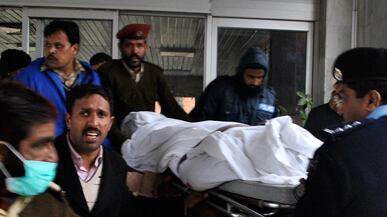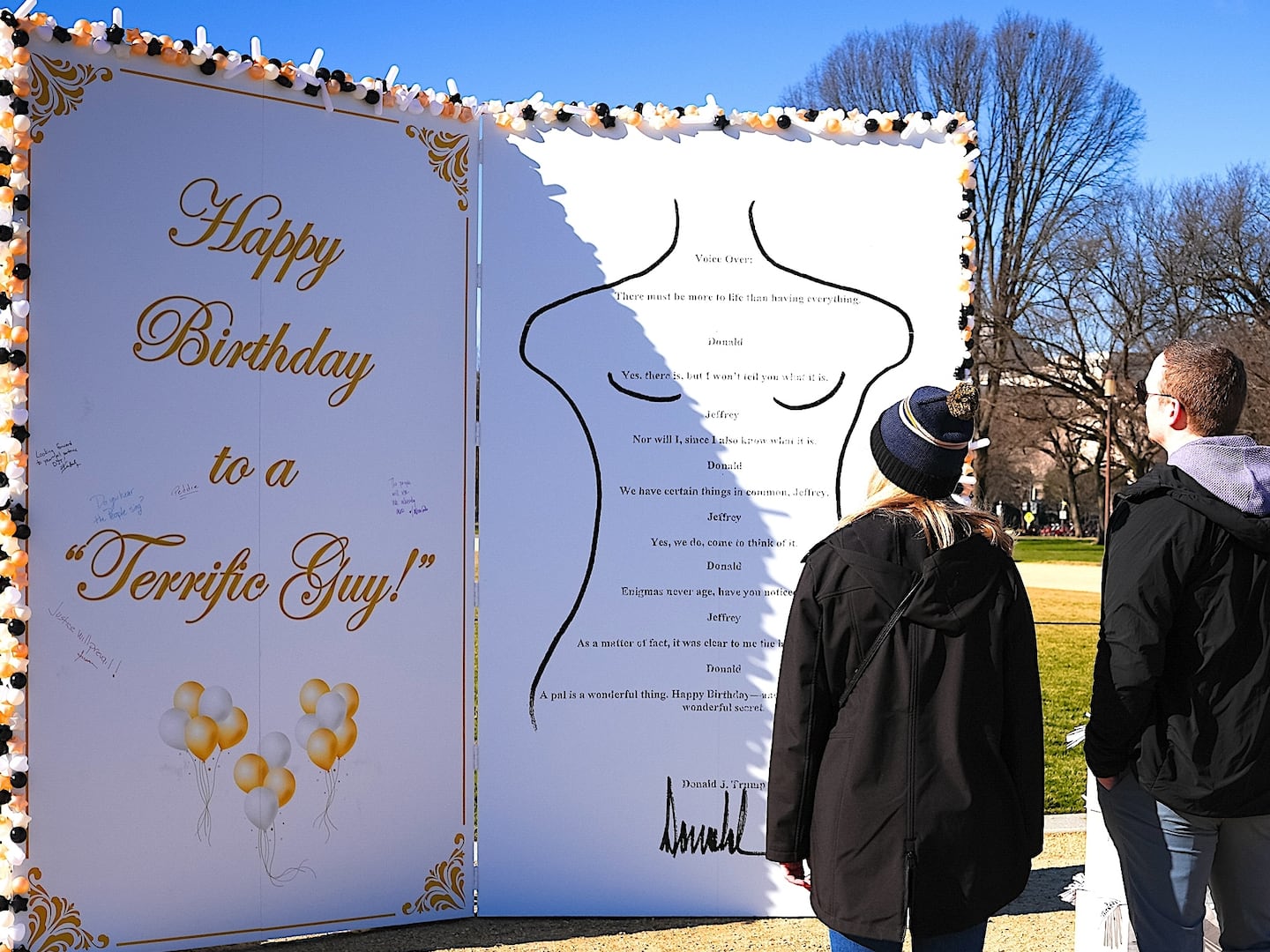“Shahbaz, from your blood revolution will come!” Thus the protesters shouted outside the Lahore Press Club some four hours after the assassination on Wednesday of Shahbaz Bhatti, federal minister for minorities. If this scant, disorganized protest—some clutching umbrellas, others holding up blood red crucifixes as irate motorists drove by—is any indication, this crowd is more likely to be at the wrong end of any revolution here in Pakistan.

Despite the widely known threats to his life, which started in 2009 after Pakistani Christians were massacred in the small Punjab town of Gojra, Bhatti was not traveling with his security detail when he was attacked. Like Salman Taseer, the governor of the Punjab who was assassinated barely two months earlier, also in Islamabad, Bhatti was slain in an audaciously public manner. Bhatti, 42, had just left his mother’s house for a cabinet meeting when a white Suzuki Mehran stopped his black Corolla. Wajid Durrani, inspector-general of capital police, says three men stepped out and opened fire. Bhatti was shot 30 times, according to the autopsy, including in the head. His driver survived the attack.
“Bhatti’s ruthless and cold-blooded murder is a grave setback for the struggle for tolerance, pluralism, and respect for human rights in Pakistan,” said Ali Dayan Hasan, country representative for Human Rights Watch. “An urgent and meaningful policy shift on the appeasement of extremists that is supported by the military, the judiciary and the political class needs to replace the political cowardice and institutional myopia that encourages such continued appeasement despite its unrelenting bloody consequences.”
News of the attack broke shortly before noon. And two hours after his death was confirmed, it was back to business for the country’s boisterous TV channels, which focused instead on the cricket World Cup, political intrigue in the Punjab, and the fate of incarcerated CIA contractor Raymond Davis. Bhatti and Taseer had both advocated reforming the country’s blasphemy laws to prevent their misuse, and both had been declared apostates by the jihadists and tens of thousands of their mainstream supporters. If the celebratory reaction to Taseer’s assassination finally put paid to the notion that Pakistan’s militants are a vocal but fringe group (the Senate refused to offer prayers for Taseer), Bhatti’s seems to confirm growing national fatigue over the blasphemy-laws controversy.
“Bhatti’s ruthless and cold-blooded murder is a grave setback for the struggle for tolerance, pluralism, and respect for human rights in Pakistan.”
Before they sped off, the assassins dumped pamphlets at the scene of the crime. “This is a warning from the warriors of Islam to all the world’s infidels, Crusaders, Jews and their operatives within the Muslim brotherhood,” it reads, “especially the head of Pakistan’s infidel system, [President Asif Ali] Zardari, his ministers, and all the institutions of this evil system.” This document from the Punjabi Taliban continues: “In your fight against Allah, you have become so bold that you act in favor of and support those who insult the Prophet. And you put a cursed Christian infidel Shahbaz Bhatti in charge of [the blasphemy laws review] committee. This is the fate of that cursed man. And now, with the grace of Allah, the warriors of Islam will pick you out one by one and send you to hell, God willing.”
Bhatti founded the All-Pakistan Minorities Alliance (APMA), an advocacy group, in 1985, and joined government in November 2008. According to the U.S. Commission on International Religious Freedom (USCIRF), Bhatti used his office “to obtain government assistance for victims of the worst instances of religiously motivated mob violence, to advocate publicly for reform or repeal of the blasphemy laws, to gain increased public attention to the concerns of the religious minorities, to secure increased employment opportunities in public service for members of religious minority communities, and to promote religious tolerance.”
In 2009, the government introduced affirmative action for minorities—5 percent of all federal employment—and designated Aug. 11 a holiday to celebrate minorities, who comprise 3.7 percent of the country’s population of 180 million. But the government also distanced itself from Taseer over the blasphemy laws controversy. It is for this reason that Bhatti, who never gave up on his position that the laws be reviewed, was a surprise inclusion in the smaller federal cabinet that was announced in early February.
“I want to give witness through my actions and through even my life that I am a follower of Christ,” Bhatti told The Christian Post in Washington, D.C., the same month. “That is why these death threats don’t give me fear, but it gives me more commitment.” His 88-year-old father had a heart attack when he heard of Taseer’s killing on Jan. 4. He died a week later. “He knew that I was very close to Taseer and [that] I am also the target of extremists, so he could not bear that,” said Bhatti. “My father used to encourage me a lot. He said that, ‘I devoted you for this cause, for the Christian rights. And you should stand to give witness.’ ”
The jihadists already have another target in their sights. Like Taseer and Bhatti, Sherry Rehman, a former information minister and member of the National Assembly from the ruling Pakistan Peoples Party, has also been declared “fit to be killed” by the Taliban for her advocacy of legal reforms to prevent misuse of the blasphemy laws. Despite the threats, she has refused to leave the country. Stepped-up security is no guarantee of one’s safety given that Taseer was killed by a policeman assigned to protect him. In his interview with the Post, Bhatti expressed as much. “I don’t believe that bodyguards can save me after the assassination [of Taseer]. I believe in the protection from heaven, so I ask the people to pray,” he said.
Pakistanis should pray for Bhatti—and for their dangerously darkening country.
Fasih Ahmed is the editor of Newsweek Pakistan. He won a New York Press Club award for Newsweek's coverage of Benazir Bhutto's assassination. Ahmed was also the inaugural Daniel Pearl fellow and worked at The Wall Street Journal's Washington, D.C., bureau in 2003. He graduated from Columbia University and lives in Lahore.






